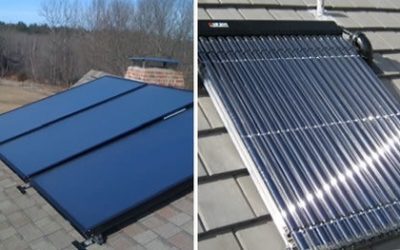Solar & Renewable
Standards
So let’s start with the basic fundamental and what is involved in the installation of solar panels. This would be the current Building Regulations Technical Guidance Document Part L Conservation of Fuel and Energy – Dwellings. This is the current Irish standard that all solar panels are to comply with.
Evacuated Tubes
Tubes may offer a higher efficiency as they have only a small amount of heat loss. On cooler days or even overcast days, the evacuated will perform better than flat panels. This is because the tubes are acting like a thermos flask and loose very little heat. Also when the sun around midday starts to move around your home and as the tubes are round a larger section is always facing the sun. Evacuated tubes in some cases can be up to approximately 20% more efficient that flat panels.
Flat Panels
Flat panels may not be as efficient as the evacuated tube – the reason being that when the sun is directly above the flat panel the complete area of the panel is being heated. This is what is called the peak output. When the sun after around midday starts to move around your home and only the side of the panel is receiving sunlight. This means that the flat panel produces less energy. The reason flat loose heat is due to what’s called thermal meaning the loss of heat to the outside air.
How does Solar Panel Work?
The answer is very simple as a general a black surface will absorb heat where a silver surface will reflect same. Now cut and paste this principle into a solar panel. What happens is the heat generated by the sun into the solar panel which in turn transfers this into your hot water cylinder. This process is aided with the help of insulated pipework and a pump.
House Orientation
Naturally, the best position is for the solar panels to be facing directly south.
The Benefits
- The main advantage of solar panels is reducing your hot water cost
- Saves money lower house energy bills
- Government grant
- Vat refund scheme
- Saves the environment

